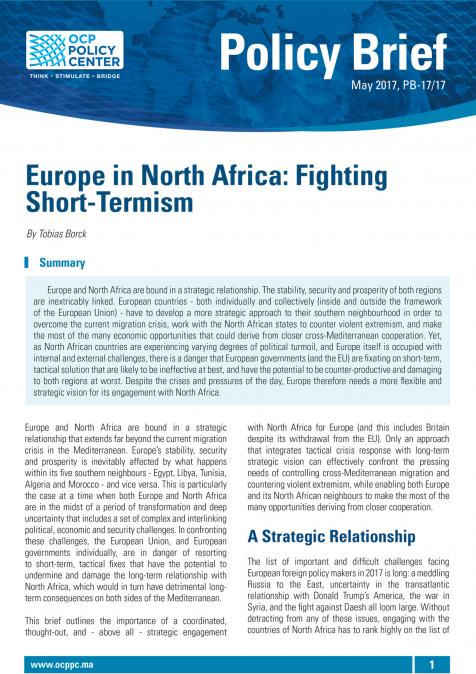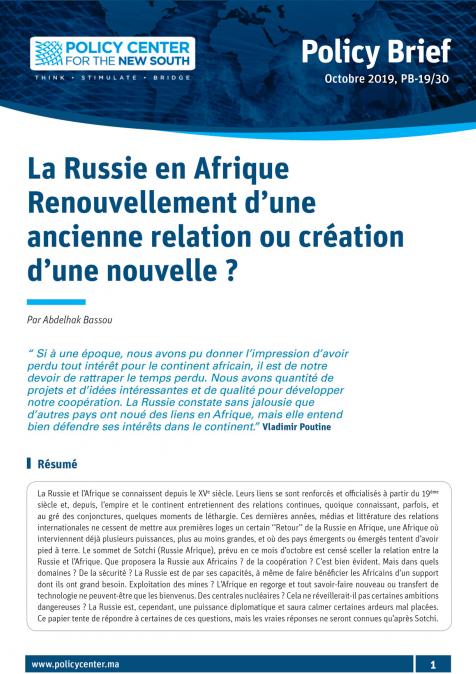Publications /
Policy Brief
Europe and North Africa are bound in a strategic relationship. The stability, security and prosperity of both regions are inextricably linked. European countries - both individually and collectively (inside and outside the framework of the European Union) - have to develop a more strategic approach to their southern neighbourhood in order to overcome the current migration crisis, work with the North African states to counter violent extremism, and make the most of the many economic opportunities that could derive from closer cross-Mediterranean cooperation. Yet, as North African countries are experiencing varying degrees of political turmoil, and Europe itself is occupied with internal and external challenges, there is a danger that European governments (and the EU) are fixating on short-term, tactical solution that are likely to be ineffective at best, and have the potential to be counter-productive and damaging to both regions at worst. Despite the crises and pressures of the day, Europe therefore needs a more flexible and strategic vision for its engagement with North Africa.





